Senior Fellows contribute their expertise to CAPRI’s collaborative, cross-sector research. In a network of research talent that spans the Asia Pacific, CAPRI research fellows are a key driver of our mission to enhance resilience and promote innovative policy through comparative research.
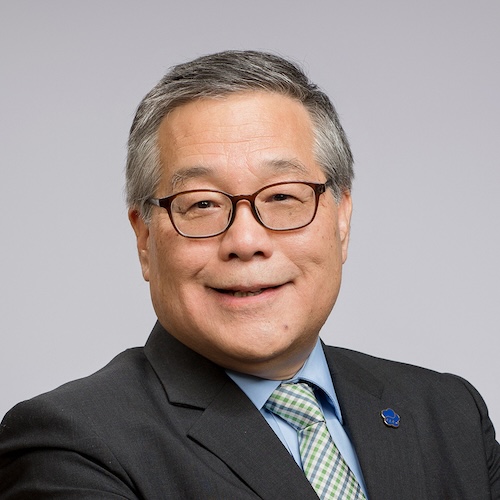
Prof. David Arase is a CAPRI 2023 Senior Fellow and Resident Professor of International Politics at the Johns Hopkins University School of Advanced International Studies (SAIS) Hopkins-Nanjing Center in Nanjing, China (2012-present). Prior to this, he was Professor of Politics at Pomona College, Claremont, CA, where he began as Assistant Professor in 1989. He was a Lecturer at the School of Oriental and African Studies at the University of London from 1994 to 1995. He earned a BA from Cornell University (1977), an MA at Johns Hopkins SAIS (1982), and a PhD in Political Science from the University of California Berkeley (1989). David’s research areas include Indo-Pacific security, comparative foreign policy (special focus on China and Japan), Sino-US relations, international development (foreign aid), and comparative Asian politics. He has conducted resident research at National Chengchi University (Taiwan, 2022-23), Asia Global Institute at the University of Hong Kong (2020-22), several times at ISEAS Yusof Ishak Institute (Singapore, since 2015), and the National Institute of Defense Studies (Tokyo, 2014). David is author of Buying Power: The political economy of Japan’s foreign aid (Lynne Rienner, 1995). He is editor or co-editor and chapter author of six volumes, including most recently The US-Japan Alliance: Balancing Soft and Hard Power in East Asia (Routledge-Nissan Institute, 2010), which was awarded the 2011 Ohira Memorial Foundation (Tokyo) Special Prize; The Rise of China: Implications for East Asian Order (Palgrave 2016); Routledge Handbook of Africa-Asia Relations (Routledge, 2018); and The Belt and Road Initiative in Asia, Africa, and Europe (Routledge 2023). David has also authored numerous journal articles, book chapters, and media commentaries addressing his research interests.
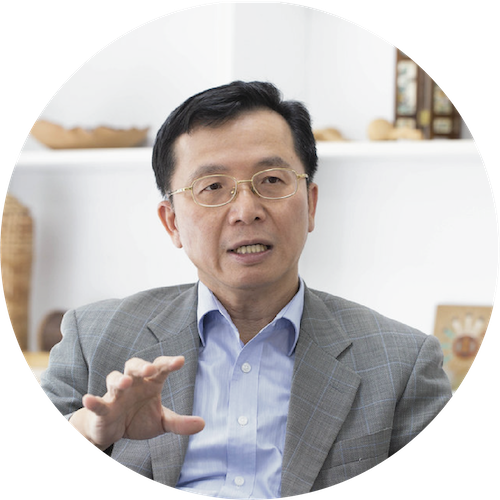
Kuei-Tien Chou is a professor in the Graduate Institute of National Development, National Taiwan University (NTU). He recently contributed to the books Sociology of Climate Change – High Carbon Society and its Transformation Challenge (National Taiwan University Press, 2017), Energy Transition in East Asia – A Social Scientific Perspective (Routledge, 2018), Climate Change Governance in Asia (Routledge, 2020), and Air Pollution Governance in East Asia (Routledge 2022).
Currently, Dr. Chou is director of the Risk Society and Policy Research Center, NTU, where he constructs a risk communicative platform between politicians, industry, civil society and media in terms of the radical societal transition in Taiwan and in East Asia. He leads young researchers in RSPRC to engage in advocacy for sustainable transitions and published several journal articles, edited books, and policy papers discussing the new paradigm of transboundary risk governance. His research interests include risk governance, sustainable development, globalization, technological democracy, risk communication, and East Asia Risk Society. Recently, he has dedicated himself to the issues of pandemics and climate change governance to reflect sustainability and cosmopolitan governance challenges.
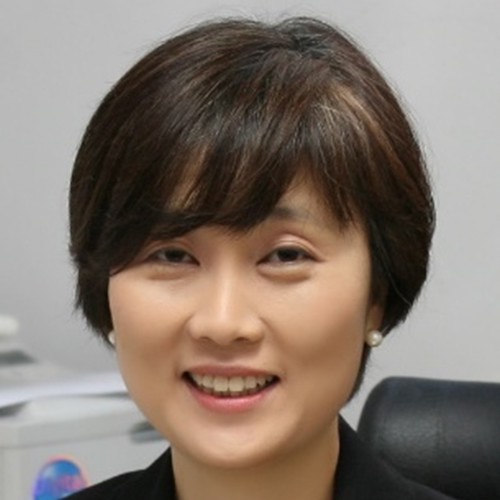
Dr. Minah Kang is professor at the Department of Public Administration at Ewha Womans University in Seoul, Korea. Until recently, she served the Korean government as the first female Commissioner of the Board of Audit and Inspection, the Supreme Audit Institution of Korea. She is currently serving as the President of the KAIDEC (Korea Association of International Development and Cooperation). She served as a committee member of various expert advisory committees, including the Presidential Committee on the 4th Industrial Revolution, the Primary Ministers’ Committee for International Development Cooperation (CIDC), and many advisory boards for the Korean government. Since 2018, she is an active member of W20, one of the engagement groups to the G20 focused on gender equity, and in 2022, was co-chair of the Working Group on Health for the W20 G20 Indonesia. Within the education sector, she served as the Dean of the Ewha Career Development Center and the Vice President of Ewha Institute for Leadership Development, which provides assistance and guidance on career development for female college students. She is the recipient of the Best Professor of the Year Award and the Best Researcher Award of the Year at Ewha.
Her research interests include global health and governance, public accountability, M&E for ODA, women empowerment, and audit and evaluation for innovation. She published numerous articles in internationally recognized public policy and health policy journals including New England Journal of Medicine, Health Affairs, Asia Pacific Viewpoint, Medical Care, Health Policy, and JAMA. She is a member of the Editorial Board of the Journal of Health Systems & Reform and Associate Editor of BMC Health Services Research. She completed a Ph.D. in Health Policy from Harvard University, Masters of Public Policy from Harvard Kennedy School and BA from Ewha Womans University.
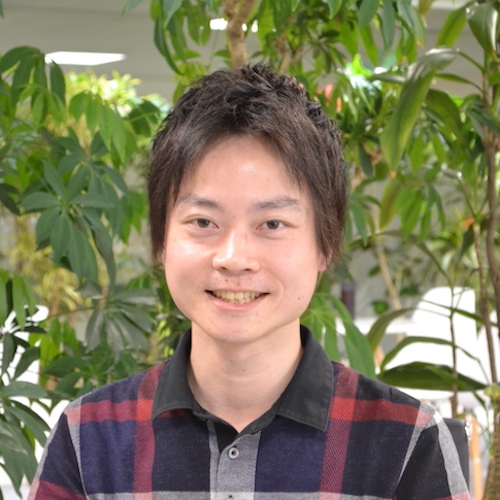
Dr. Shuhei Nomura, an Associate Professor of Health Policy and Management at Keio University School of Medicine, actively contributes to the Global Burden of Diseases Study (GBD) and the Global Nutrition Report (GNR). He serves on the GBD’s Scientific Council, the GNR’s Independent Expert Group, and was a member of the G7 Global Health Task Force for the 2023 G7 Summit, which took place in Japan. In addition, he offers consulting services to the Japan Office of the Bill & Melinda Gates Foundation, SEEK Development, and the World Health Organization Centre for Health Development.
Dr. Nomura has played a pivotal role in planning COVID-19 countermeasures in Japan, having initiated several projects such as the Excess Deaths Dashboard and the COOPERA Healthcare System. His areas of expertise include biostatistics, global health policy, disaster risk management, among others.
Dr. Yen Pottinger is an infectious disease laboratory expert and public health specialist with over 15 years of experience both domestically and internationally. She currently serves as Senior Technical Advisor for Laboratory Surveillance at ICAP, Columbia University. She focuses on implementing HIV public health programs primarily in Africa, namely point-of-care recency testing in the CDC-funded Tracking with Recency Assays to Control the Epidemic (TRACE) Project. Previously, she was Senior Laboratory Advisor for the Population-based HIV Impact Assessment (PHIA) Project. She also works on improving HIV laboratory systems and diagnostic testing, collaborating with health ministries and other global and local partners in ICAP-supported countries. Throughout the COVID-19 pandemic, Dr. Pottinger has provided technical assistance and guidance to CDC and U.S. government entities, ministries of health, and other partners on SARS-CoV-2 diagnostic testing and safety protocols. She is also principal investigator for a CDC-funded project on antimicrobial resistance in Kenya. Over 8 years at CDC, Dr. Pottinger developed, validated, and implemented the limiting antigen avidity assay, which is now the most widely used assay globally for estimating and surveilling HIV incidence. Dr. Pottinger holds a Doctoral degree from the University of California, Davis in Pharmacology and Toxicology. She completed postdoctoral training as an ORISE fellow at CDC Atlanta.
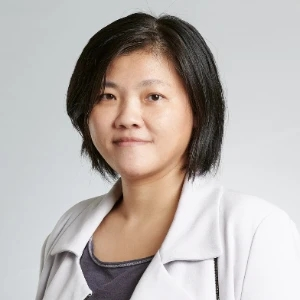
Dr. Feng-jen (Jean) Tsai is the Director and a professor of the Global Health and Health Security program, Taipei Medical University. She is also an adjunct professor of the Graduate Institute of Health and Biotechnology Law at Taipei Medical University.
Her research specializations are in the fields of global health policy and law, infectious disease control, health system strengthening, trade and health, and occupational health. As a scholar trained both in law and public health, Jean applies both quantitative and qualitative approaches to answer questions in global health. Prior to entering academia, Jean worked as a lawyer in Taiwan.

Sir Collin Fonotau Tukuitonga KNZM is a Niuean-born New Zealand doctor, public health academic, public policy expert and advocate for reducing health inequalities of Māori and Pasifika people. He has held several positions in public health and government in New Zealand and internationally.
He was appointed a Knight Companion of the New Zealand Order of Merit, for services to Pacific and public health, in 2022.
Sir Collin has held several highly influential offices, including Director General of the Pacific Community (SPC), Commissioner and Co-ordinator for WHO Geneva, Chief Executive of the Ministry of Pacific Island Affairs and Director of Public Health, Ministry of Health. He was also instrumental in establishing Pacific Language weeks as an Aotearoa New Zealand government initiative, and in his home of Niue, he established the biannual Niue Culture and Arts Festival.
Sir Collin is one of our most prominent Pacific figures in the health sector in Aotearoa and globally. His voice was crucial in advocating for Pasifika during the Covid crisis in Aotearoa, and he has been consistently vocal in pointing to inequities for Pasifika in the health system and pushing for policy to impact Pasifika in better ways.
His current positions at the University of Auckland are Associate Dean Pacific, Faculty of Medical and Health Sciences Administration; Associate Professor, Population Health; and Director – University Research, Centre for Pacific and Global Health.